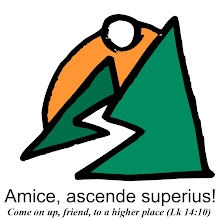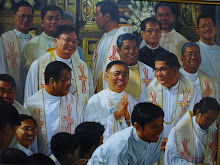
This third Sunday of Lent offers us a glimpse about who God is for us. The first reading shows us a God uttering important words as guideposts for our conduct and behavior. It is unfortunate that the English rendition of Decalogue (ten words) came down to us as ten commandments. For freedom-loving people of today, immersed in a world of a multiplicity of choices on all fronts, the word commandment sounds too negative, too limiting, too constricting.
Such a narrow understanding of the broader biblical context of God’s self-revelation through Moses may not sit well with many of us. We all love autonomy. We do not want to be hemmed in. We abhor being controlled like puppets on a string. It does not sit well too with the real nature of God who shows himself to Moses and the chosen people as liberator, as deliverer who “brought [them] out of the land of Egypt, that place of slavery” (Ex 20:1). This God who liberates is also a God who gives the needed tools to secure that freedom, the very means by which men and women could grow even more in freedom. These are the “ten important words” of today’s liturgy, the Decalogue.
That broader understanding of God as liberator rather than legislator is aptly expressed in our response to the first reading: “Lord, you have the words of everlasting life.” Psalm 19 extols the beauty of the law of the Lord. “The precepts of the Lord are right rejoicing the heart; the command of the Lord is clear, enlightening the eye.”
We have a rare chance today to disabuse the notion of the law as constricting and prohibitive. At the same time, we see here a subtle invitation for us to reflect more on the role of these ten words in our personal lives. We all can get a clue from Thomas Merton who wrote: “The important question in life is not ‘Am I happy?’ but ‘Am I free?’” Perhaps doing away with the ten words would make us think we would be happy because we are not shackled by any rules. But the absence of such guideposts would not make for freedom. Happiness alone does not make us good people. It does only make us “feel good.” But to be really good and do good, one needs freedom. Such freedom is not freedom from bonds, but freedom for. And this genuine freedom makes us capable of letting all the goodness out of our personhood; it makes us capable of love, the greatest act of freedom. Michel Quoist, a writer who was famous back in my college days, wrote: “Freedom doesn’t mean being free for nothing. It means being free to love.”
This then leads us to look at what constricts freedom in the long run. It is, to use a 64 dollar word, anomie, the state of lawlessness. Think about driving down a highway on a dark night and there are no white guide lines on your left and on your right. Think about a little town of several thousand people where there are no rules and restrictions to guide people’s conduct and behavior. Think about every single one doing what he or she pleases, at any given time. Think about unbridled behavior from everyone. Think about sin and sinful acts galore! What do you see? Bondage, slavery, disorder, chaos. Such was the state the Israelites were in over at Egypt. Then God decided to liberate them through the leadership of Moses. Keeping us all in freedom…making us truly and fully liberated…this is what those ten words are all about!


No comments:
Post a Comment